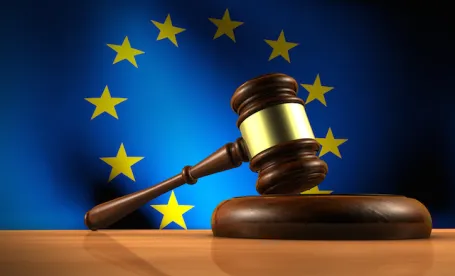Here is a sentence we don't write very often: A decision this week of the European Court of Human Rights has brought U.S. and European defamation law into greater alignment. Well, at least regarding hyperlinks to defamatory content.
The decision, Case of Magyar Jeti ZRT v. Hungary, concerned an incident in 2013 in which football hooligans attacked a school for Roma children in Konyar, Hungary. Hungarian news outlets, including the website www.444.hu, reported on the incident. As part of the reporting, 444.hu mentioned that a local Roma leader had spoken out against the attack. The article included a hyperlink to a video of the leader's comments but did not describe or repeat them. In the video, the Roma leader claimed that Jobbik, a right-wing Hungarian political party, was responsible for the attack.
Jobbik brought a defamation action against the news site, arguing that it should be held liable for hyperlinking to defamatory content. The Hungarian Supreme Court ultimately agreed, finding that the local Roma leader's accusations were false and defamatory. Linking to a video of those accusations, the court held, constituted "dissemination" of the defamatory statements, for which the website was liable. The decision essentially treated a hyperlink as a republication of contents of the hyperlinked site. The decision caused concern across Europe, being viewed as part of a wider trend in Hungary towards political repression.
Represented by the Medial Legal Defence Initiative and supported by numerous NGOs, the website challenged the Hungarian decision before the European Court of Human Rights, arguing the ruling violated its fundamental right to freedom of expression. On December 4, the court—which is tasked with interpreting the European Convention on Human Rights—unanimously rejected the Hungarian decision. Hyperlinks, the court wrote, "are essentially different from traditional acts of publication in that, as a general rule, they merely direct users to content available elsewhere on the Internet. They do not present the linked statements to the audience or communicate its content, but only serve to call readers' attention to the existence of material on another website."
The court also noted that information in a hyperlink can be changed at any time, posing obvious risks. To subject publishers to liability for a hyperlink would "have foreseeable negative consequences on the flow of information on the Internet, impelling article authors and publishers to refrain altogether from hyperlinking to material over whose changeable content they have no control. This may have, directly or indirectly, a chilling effect on freedom of expression on the Internet."
The court recognized that there could be liability if a publisher endorsed or adopted the contents of the hyperlink, or repeated the contents. But simply linking was not enough: The court also re-emphasized that "the limits of acceptable criticism are wider as regards a politician—or a political party—as such than as regards a private individual." In this respect, the court suggested that even if 444.hu had published the Roma leader's statements, it might not have been liable for defamation. The website was reporting on a matter of public importance and the local leader's statements, "although perhaps controversial," were not "clearly unlawful from the outset." The court rebuked the Hungarian court for not giving greater weight to the right to freedom of expression, especially on matters of political and public importance—welcome words, given international concerns about declining press freedoms in the country.



 />i
/>i

